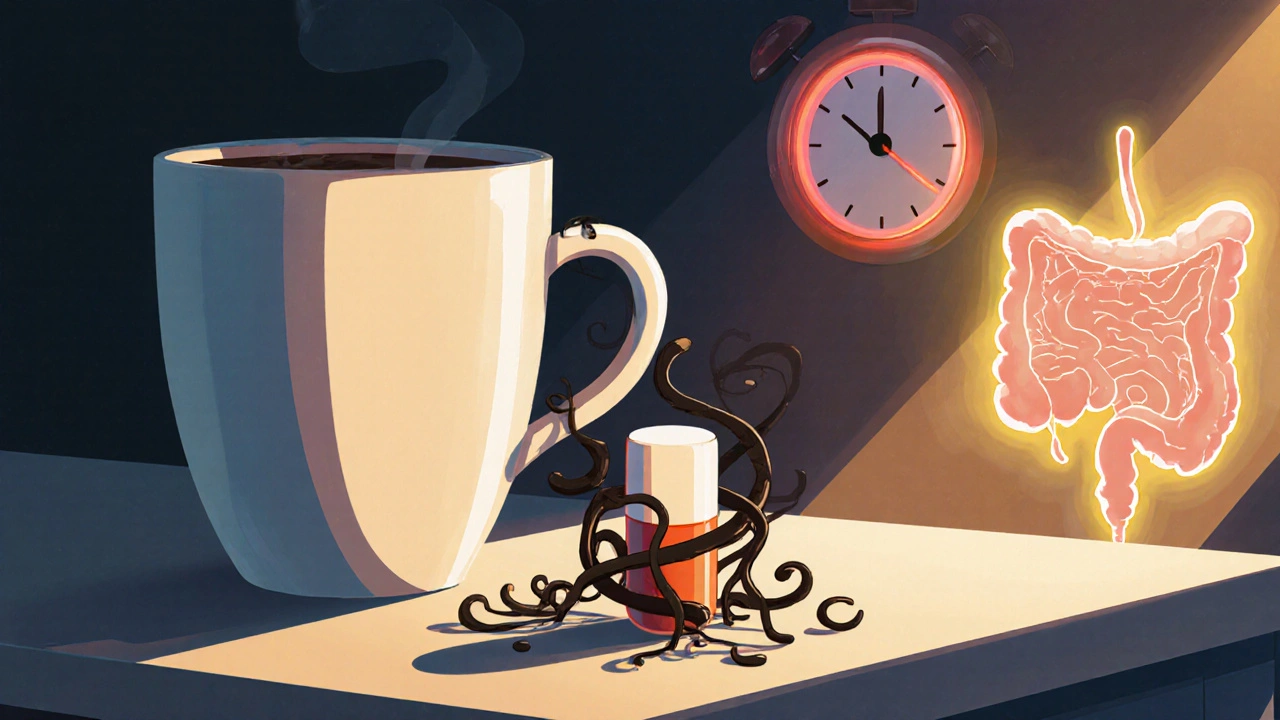Levothyroxine and Coffee: What You Need to Know About the Interaction
When you take levothyroxine, a synthetic thyroid hormone used to treat hypothyroidism. Also known as synthroid, it's one of the most commonly prescribed medications worldwide for managing underactive thyroid. Many people don’t realize that their morning cup of coffee, a common beverage containing caffeine and compounds that bind to minerals and drugs can seriously mess with how well your body absorbs it. This isn’t a myth—it’s backed by clinical studies. Even one cup of coffee taken within an hour of your dose can cut absorption by up to 30%. That means your thyroid hormone levels stay low, your symptoms don’t improve, and you might end up feeling tired, gaining weight, or struggling with brain fog—despite taking your pill every day.
The problem isn’t just caffeine. Coffee contains polyphenols and other compounds that act like sponges, grabbing onto levothyroxine in your gut before it can get into your bloodstream. It’s the same reason you shouldn’t take it with calcium supplements, iron pills, or soy products. But coffee is the sneakiest because it’s part of so many people’s daily routine. You wake up, grab your cup, then swallow your pill—thinking you’re doing everything right. But timing matters more than you think. The rule isn’t just "take it on an empty stomach." It’s "take it at least 30 to 60 minutes before anything else," including coffee, food, or other meds. Some doctors even suggest waiting 4 hours after coffee before taking levothyroxine if you’re struggling to get your levels stable.
And it’s not just coffee. Other drinks like espresso, cold brew, and even some energy drinks have the same effect. Tea? Also a problem—especially green tea, which has similar binding compounds. The fix? Simple: take your levothyroxine first thing in the morning with a full glass of water, then wait. Don’t rush. Don’t multitask. Let your body do its job. If you can’t wait, switch to taking it at bedtime—4 hours after your last meal and drink. Many patients find this works better, especially if they’re already drinking coffee before breakfast.
What you’ll find below are real, practical guides from people who’ve been there. From how to track your thyroid levels after changing your routine, to what alternatives to coffee might work better, to how other meds like calcium or iron interact with levothyroxine—this collection cuts through the noise. No fluff. No guesswork. Just what actually works when you’re trying to get your thyroid back on track.

